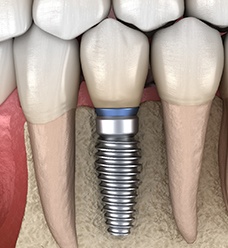
Dental implants boast an outstanding success rate — in fact, they thrive in over 95 percent of cases! However, that does not guarantee that your dental implants will always remain problem-free. Various circumstances can put them at risk of failure. On this page, we discuss some of the possible causes of dental implant failure. We also explain how it may be possible to save your restored smile via our dental implant salvage services in Jacksonville.

There are a number of reasons why dental implants may fail, including:

If you notice signs that one of your dental implants is failing — for example, if it feels loose or the gum tissue around it is red and swollen — contact our team right away. The sooner you seek help, the more likely it is that we can save your implant with a conservative, minimally invasive treatment. When you come in for your appointment, we will put our expertise and our state-of-the-art technology to work to diagnose the cause of the problem. Then, we will recommend a course of action.
In some cases, it is possible to stop an infection in its early stages and avoid surgical intervention. Antibiotics, along with an increased focus on oral hygiene, might be able to prevent an infection from worsening to the point where total implant failure occurs. We have an on-staff periodontist, Dr. Aguila, who is an expert on the gums and the conditions that affect them, including peri-implant mucositis and peri-implantitis.
In other cases, surgery is necessary. We may need to place new bone material around the implant to help it stay in place. We might also have to remove the implant altogether. In instances where removing the implant is necessary, it may be possible to place a new implant after the patient’s mouth has had an opportunity to heal.
Following your dental implant salvage procedure, we will provide you with personalized tips on how to minimize your risk of future issues with your dental implants.